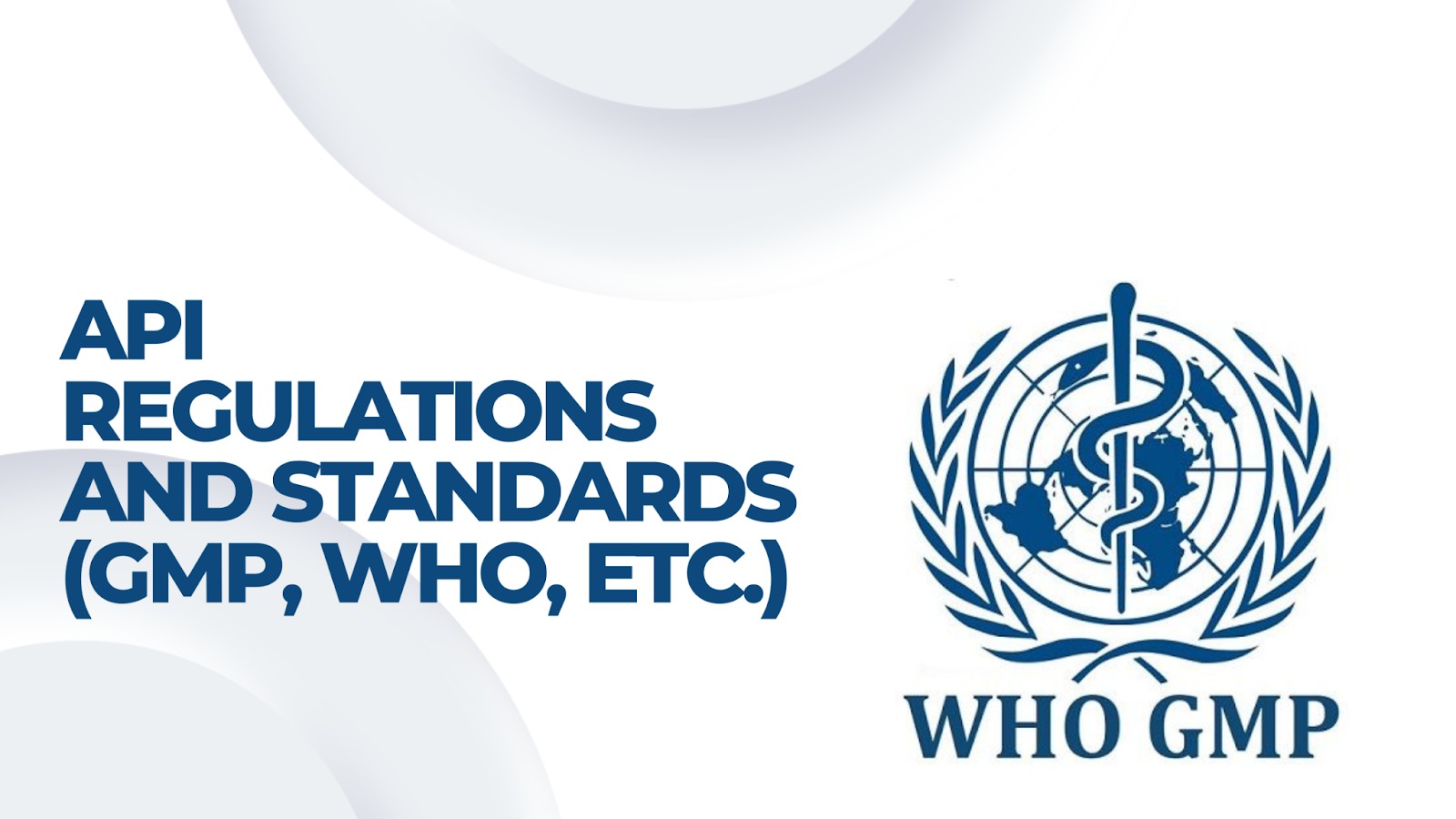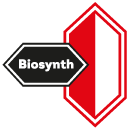API Regulations and Standards (GMP, WHO, etc.)

In the pharmaceutical industry, compliance is not just a requirement; it is the foundation of safety, effort, and public health. Adherence to established standards ensures that pharmaceutical products are consistently safe and effective for use. Important regulations governing Active pharmaceutical ingredient (API) manufacturing include Good Manufacturing Practices (GMP), World Health Organization (WHO) guidelines, and regional standards such as the US. FDA, EU GMP, and ICH guidelines
Overview Of Global Standards
- GMP (Good Manufacturing Practice): GMP is a system that ensures that manufacturing processes are consistently manufactured and controlled according to quality standards. These practices cover every aspect of production, including raw materials, equipment, labor, and the environment, with the goal of reducing the risks of contamination, cross-contamination and defects types that can affect product quality. Compliance with GMP ensures product conformity, which is essential for APIs as it is important to maintain product integrity.
- WHO Guidelines: The World Health Organization plays a key role in setting global health standards to ensure the safety, efficacy and quality of medicines worldwide. WHO guidelines help countries harmonize drug regulations, facilitate international trade and ensure the availability of essential medicines to meet global health needs. These guidelines cover all phases of drug development, from research and testing to manufacturing and distribution.
- Other Regional Standards:
Pharmaceutical companies are also required to comply with various regional standards to enter different markets.
- ☐ U.S. FDA (Food and Drug Administration): U.S. Food and Drug Administration, the FDA applies strict regulations to pharmaceuticals, ensuring the safety, efficacy and quality of drugs supplied to the US market.
- ☐ EU GMP (European Union Good Manufacturing Practice): EU GMP is another important standard that pharmaceutical manufacturers must adhere to in order to sell pharmaceutical products in the European market.
- ☐ ICH Guidelines (International Council for Harmonization): ICH guidelines ensure that drugs developed in different industries meet common standards, and promote global harmonization in the pharmaceutical industry.
Effects Of Non-Compliance
Noncompliance with pharmaceutical regulations can have serious consequences for manufacturers, health care industry, and public health:
Public Health Risks
If pharmaceutical companies do not comply, there is a serious risk of producing unsafe or ineffective drugs. Non-conforming products can be contaminated, labeled improperly, or even harmful, causing widespread health issues.
Legal And Economic Implications For Manufacturers
The legal implications from non-compliance can be substantial. Companies can be fined, sued, or even banned from selling their products. Furthermore, the financial consequences of product recalls, reputational damage and loss of trust can be long-lasting and difficult to overcome.
As Bio-Synthesis Stands Out
Bio-Synth is committed to meeting and exceeding the highest regulatory standards to ensure the safety and effectiveness of its products. With its WHO GMP accredited facilities, Bio-Synth has established itself as a leader in the field of international and Indian pharmaceutical practice monitoring. Their commitment to regulatory excellence is reflected in their rigorous processes and ability to exceed basic regulatory requirements, ensuring that their API products are of the highest quality.
Conclusion
Bio-Synth has excellent legal expertise in its field. Compliance with GMP, WHO guidelines, and other regional standards ensures that global healthcare requirements are met and that reliable and safe products are delivered to the market. By consistently exceeding regulatory expectations, Bio-Synth has earned the trust of the global healthcare industry and continues to stand out as a leader in the pharmaceutical industry.
We are listening.
We believe that the heart of dialogue is listening.Please write in your queries and we will get back to you.
